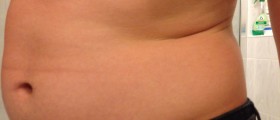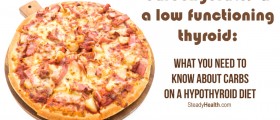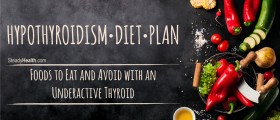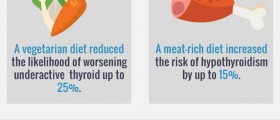I had a baby 6 months ago, I ended up with a blood clot on my lung and was put on fragmin and warfarin. I'm now off the fragmin and only on 8mg of warfarin a day but in the 6 months I've been taking them I've gain 1 stone 7lbs. I'm very active as I'm a dance teacher so I work out at least 4 times a week, I walk the baby and the dog every single day for an hour and my diet is very good. Yet I still manage to gain a whole stone and a half! This is not right!
Loading...
I'm sorry to hear about your health challenges. Pregnancy and postpartum periods can be stressful times in many ways, and the development of a blood clot (known as a pulmonary embolism in the lungs) can be particularly concerning.
Regarding your weight gain, there are a number of potential factors to consider:
-
Medication Effects: Some people report weight changes when on certain medications, including anticoagulants. However, warfarin (Coumadin) itself is not typically associated with weight gain. Still, individual responses can vary.
-
Hormonal Changes: After pregnancy, there are significant hormonal changes in the body. Hormones play a crucial role in weight management, and these postpartum shifts might affect your weight.
-
Metabolism Changes: Your body's metabolism might have changed after pregnancy. Even if you're active and eating well, the number of calories you burn at rest (basal metabolic rate) might be different than before.
-
Fluid Retention: Some women experience fluid retention postpartum, which can contribute to weight gain. Certain medical conditions or medications can also cause fluid retention.
-
Thyroid Function: Pregnancy can affect thyroid function, and an underactive thyroid (hypothyroidism) can lead to weight gain, among other symptoms. It might be worth checking with your doctor to evaluate your thyroid function.
-
Dietary Factors: Even with a good diet, subtle changes in portion sizes, snacking, or even drinks can make a difference over time. Tracking your intake for a week might reveal some unexpected insights.
-
Mental Health: The postpartum period can be emotionally challenging, with the potential for mood disturbances such as postpartum depression or anxiety. These can influence appetite and eating behaviors.
-
Breastfeeding: If you are breastfeeding, your body's caloric needs and fluid balance can be different.
Regardless of the reasons, it's essential to discuss your concerns with a healthcare professional who can offer tailored guidance and potentially run tests to rule out underlying medical conditions. Remember, everyone's body is unique, and postpartum changes can manifest differently for each individual. You're doing a great job by staying active and being attentive to your diet, but it's essential to get the insights and support you need during this period.
Loading...
















